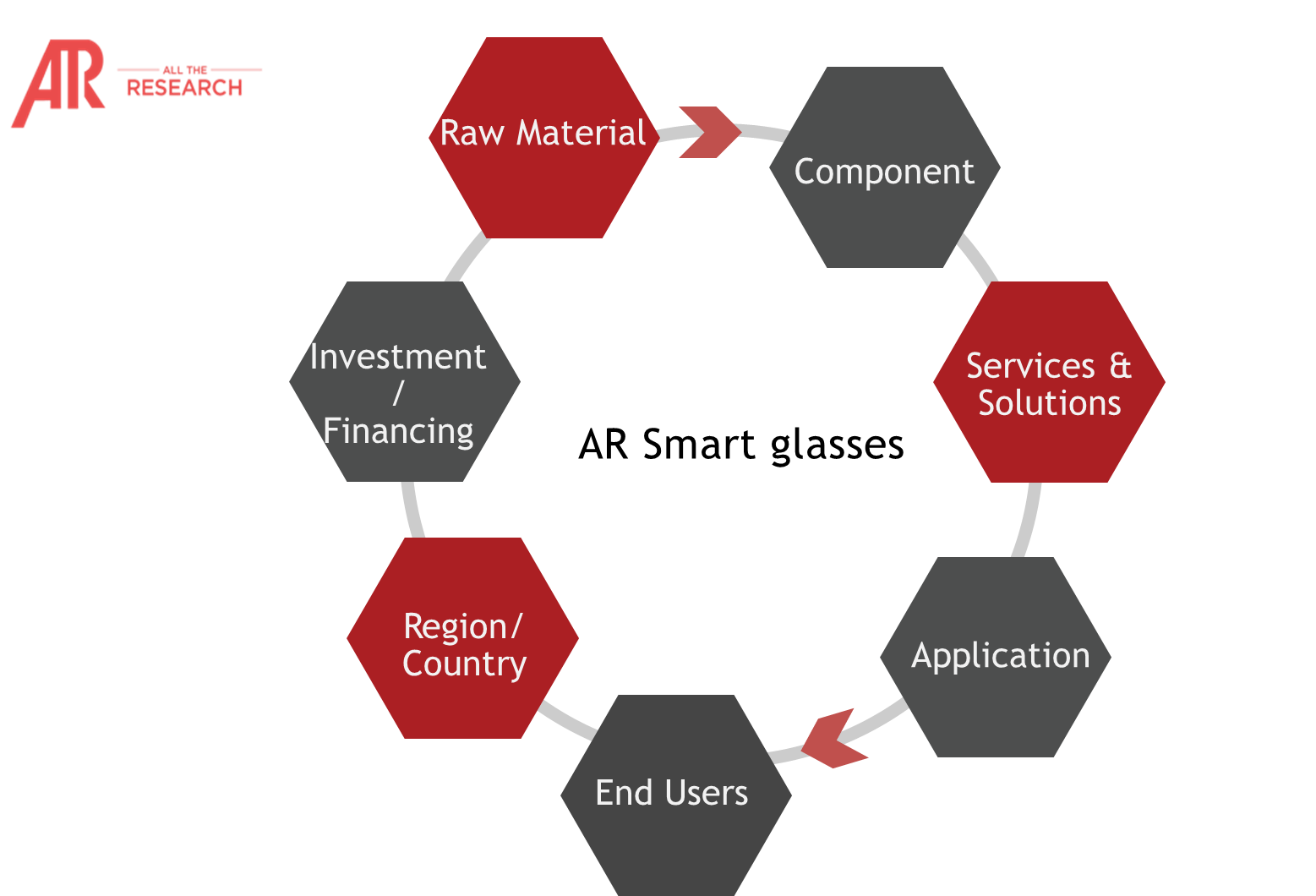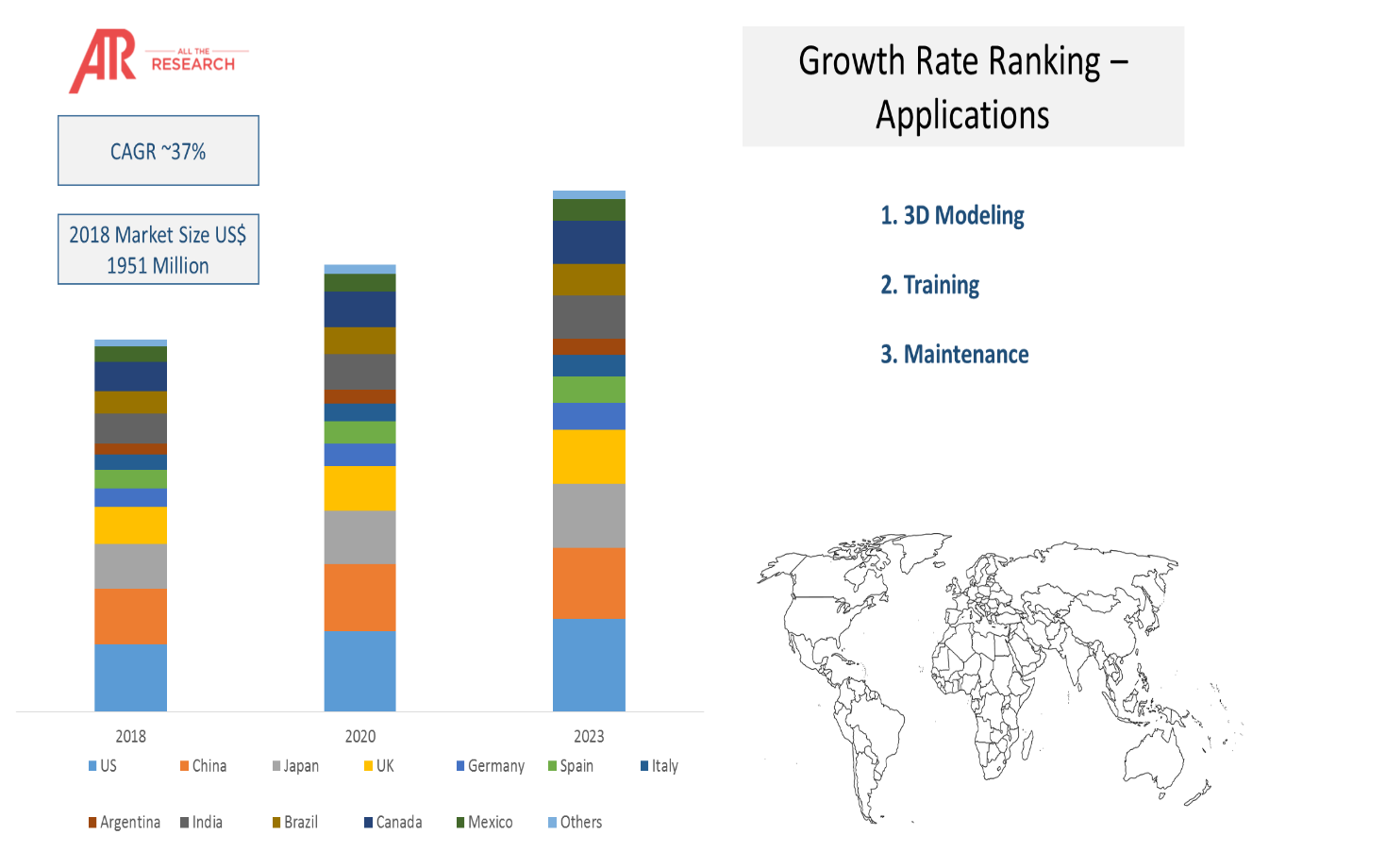Augmented Reality has captured the attention of the top technology companies in the world. Currently, the ARVR market is at the early stage of development. Only big companies such as Microsoft, Snap, Facebook, Google, Apple, and Amazon are working on advanced AR glasses, which will increase the demand for AR Smart glass market. The smart AR glasses that is currently available are mostly huge in size that makes people feel that these glasses might look weird. But the scenario is gradually changing. Human Capable Inc. is developing the next-gen Norm glasses that look like normal eyewear, but feature high-resolution camera, voice command, touch and head gesture controls, and a 4-day standby battery that is compatible with Android or iOS. Vuzix, a New York-based display provider, priced its products at US$ 1000, but the company hopes to bring down the price to US$ 500.
Get a Sample Copy of Report @ https://www.alltheresearch.com/sample-request/357
Figure 1: Ecosystem Snapshot: AR Smart glasses Ecosystem

In 2019, Facebook has entered a partnership with Luxottica to develop Augmented Reality glasses named “Orion”. It features all the basic features of a smartphone along with live streaming of information from the viewers’ point of view. The main objective of this partnership is to replace smartphones with smart AR glasses. Orion AR smart glasses are expected to enter the market by 2025. In order to develop a full-fledged AR smart glasses, the companies require powerful hardware. In July 2019, Nvidia showcased its latest research at AR wearable at the SIGGRAPH conference in Los Angeles. This features a Foveated AR that can track the viewer’s eye and provide enhanced visual experience. Such developments will contribute to the growth of the AR smart glasses market.
Download Free Sample Report @ https://www.alltheresearch.com/sample-request/357
In the AR Smart glass market, the applications and OS required for AR smart glasses are being developed and the leading tech companies have laid a strong foundation for this purpose. However, the major challenge is to sell AR smart glasses at affordable prices. Epson is going to launch the next version of its Moverio smart glasses, the Moverio BT-30C. The price of the glass is US$499. The Moverio software utilizes apps from Android phones. The 5G roll-out also has a significant effect on these AR glasses. Enhanced connectivity will allow heavy multimedia files to function smoothly, thus creating an enhanced user experience.
Figure 2: Market Statistics Glimpse

In 2019, North America houses most of the leading technology companies and it is dominating the AR Smart glass ecosystem. Europe is the second largest market for AR smart glasses, followed by APAC. In APAC, the demand is driven mainly by China and Japan. In the healthcare industry, AR smart glass developer Vuzix announced in the year 2019 that it has partnered with Vsee, a telemedicine company, to provide smart glass-based telemedicine solution that provides real-time videos. Taking Logistics industry into consideration, DHL has partially deployed “Google glass enterprise edition” to most of its warehouses. The company reported that the use of AR smart glasses had reduced the workload and increased efficiency by 15%. The development of new technologies such as IIoT and 5G will further boost the demand and contribute to the growth of the AR smart glass market in the forecasted time period.